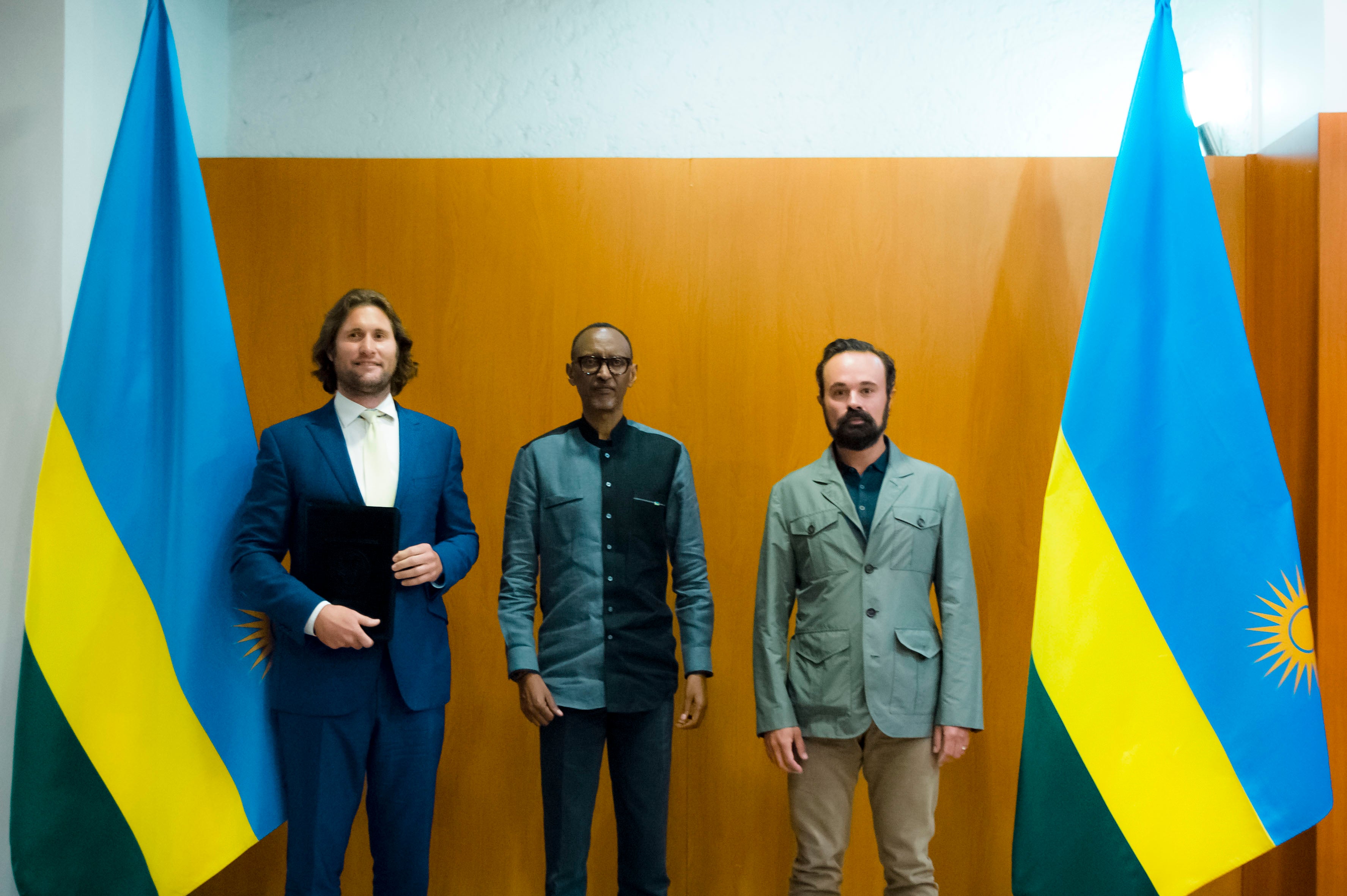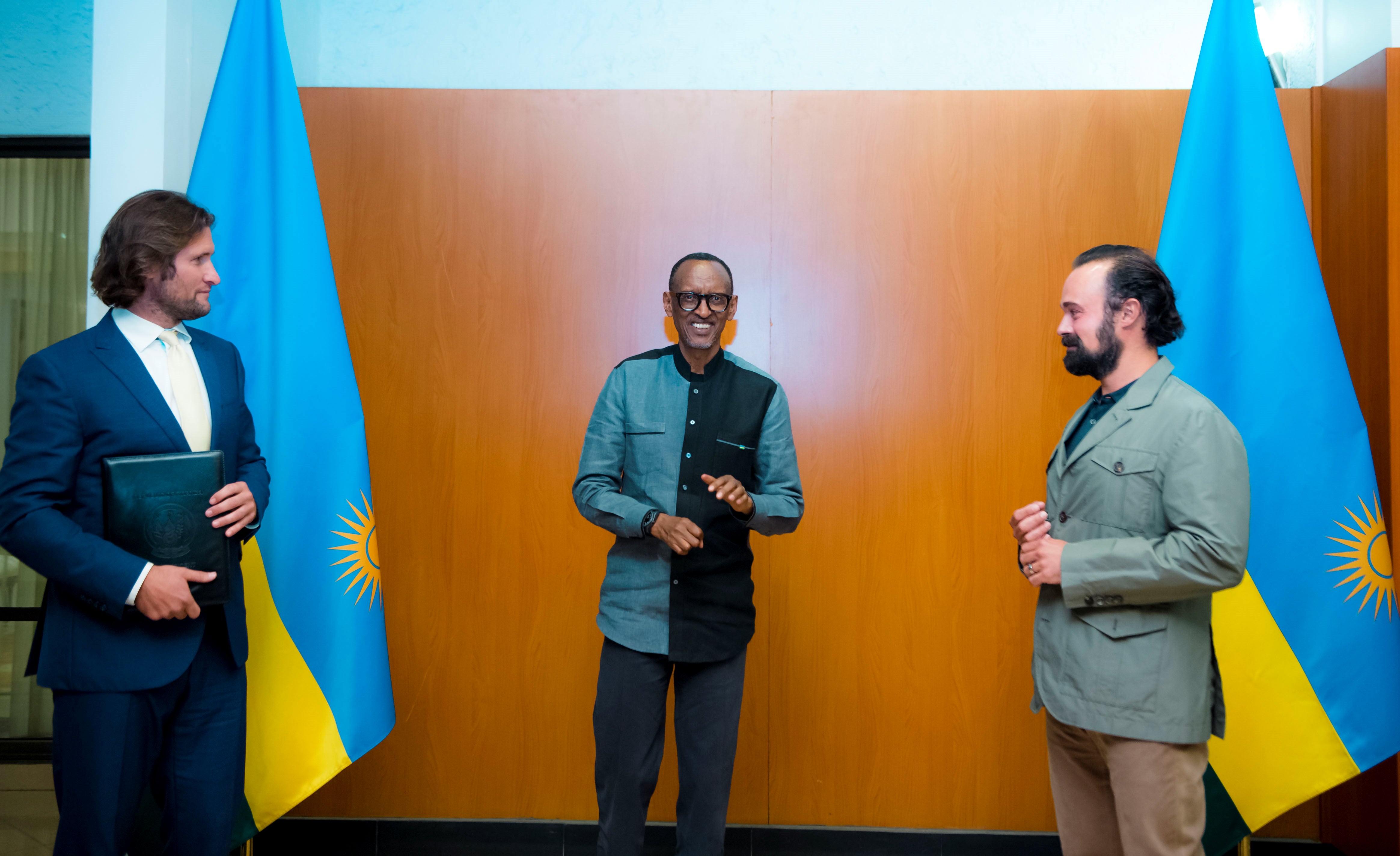Rwanda joins the Giants Club
Space for Giants’ CEO, Dr Max Graham, explains why Rwanda’s joining the Giants Club is an important moment in conservation

Your support helps us to tell the story
From reproductive rights to climate change to Big Tech, The Independent is on the ground when the story is developing. Whether it's investigating the financials of Elon Musk's pro-Trump PAC or producing our latest documentary, 'The A Word', which shines a light on the American women fighting for reproductive rights, we know how important it is to parse out the facts from the messaging.
At such a critical moment in US history, we need reporters on the ground. Your donation allows us to keep sending journalists to speak to both sides of the story.
The Independent is trusted by Americans across the entire political spectrum. And unlike many other quality news outlets, we choose not to lock Americans out of our reporting and analysis with paywalls. We believe quality journalism should be available to everyone, paid for by those who can afford it.
Your support makes all the difference.One of the key dates in the calendar every year in Rwanda is the national ‘gorilla naming ceremony’, Kwita Izina, which mirrors a Rwandan tradition of naming newborns in front of family and friends.
All infant gorillas born to the country’s growing troops of mountain gorillas are given their name, usually chosen by gorilla rangers. Dignitaries have the honour of bestowing each name at the ceremony.
Far from being just a conservation jamboree, Kwita Izina is a major national event. National and international brands sponsor it: watch online and you’ll see the likes of Volkswagen and Arsenal Football Club attending alongside tourism and environmental groups.
Most importantly, it is attended by hundreds of ordinary Rwandans and watched by millions more on television. It’s part of a national strategy that has succeeded in turning Rwandan citizens into custodians of their natural heritage by recognising how it brings key development opportunities to the whole country.
Helming this strategy is Rwanda’s president Paul Kagame, who I’m excited and proud today to welcome into the Giants Club, an initiative of the conservation organisation I lead, Space for Giants.
President Kagame becomes the sixth African Head of State to join the Giants Club, a unique forum that brings together African Presidents with major business leaders, leading philanthropists, and global influencers to protect some of the continent’s most important remaining natural landscapes that hold populations of large wild animals.
He joins us as we are starting a major strategic shift away from a ‘single-species’ approach towards protecting entire natural ecosystems, really accelerating our work to bring resources and investment into Africa’s natural capital.
That is one of the many reasons that President Kagame resonates with Space for Giants and the Giants Club. He is perhaps the greatest champion for the wildlife economy on the African continent, if not in the world.
The proof is already in the pudding in Rwanda in the way that the government demonstrates that the wildlife economy - driven by tourism - is a key pillar to their development, which has already really sown benefits for the country. Tourism earned the country close to half-a-billion US dollars in 2019, pre-pandemic. By 2024, the government aims for that to rise to $800 million.

President Kagame understood very early on that a tourist coming to Rwanda is so much more than just a tourist coming to Rwanda. Their visit is an opportunity to achieve trickle-down impact across the wider economy, in everything from food production to taxi fares. On top of that a tourist can become an investor into the wider economy.
This idea that conservation can be an economic sector, just like coffee, or financial services, or business process outsourcing, has already taken deep root in Rwanda. The widely-respected African Leadership University, dedicated to nurturing Africa’s next generation of entrepreneurs, chose Rwanda for its new School of Wildlife Conservation that focuses on building the business opportunities of nature protection.
Since building its gorillas tourism model, Rwanda has now moved to restoring its protected areas. Akagera National Park is a prime example. Most of the charismatic megafauna in this park went extinct due to poaching and conflict.
Under a co-management agreement with African Parks, Akagera has been restored and rewilded. This involved a massive translocation of endangered species including lion, rhino, and elephant. Akagera is in many ways now a model for the continent on how to rehabilitate a Protected Area.
What was absolutely crucial to this approach was the embracing of a public-private sector partnership. Space for Giants strongly endorses this approach as the most effective path today for ensuring that protected areas are not only properly conserved and managed but that the value they generate from responsible enterprises, like tourism, can be optimised.
That’s really key to us. It is an area where Space for Giants and the Giants Club have developed sector-leading expertise through our Conservation Investment Processes that work alongside African governments to support their strategies to build their wildlife economies.
Having started in Uganda in 2017, today we’re running a national conservation investment process in Gabon and we’ve been invited by Kenya to bring conservation investment into its protected area network. Similar work is underway in Mozambique.
Top of our list as we start working together is to support Rwanda as it builds on its existing successes, for example with discussions on how to harness emerging mechanisms of conservation finance such as carbon offsetting.
We also look forward to expanding Space for Giants’ pioneering Wildlife Law and Justice programmes to Rwanda. Using tried-and-tested strategies, we support national judicial authorities as they work to make prosecutions of suspected wildlife traffickers and poachers as effective as they can be. The law really can be a deterrent here.
President Kagame’s focus and leadership in all of these areas means that his participation in the Giants Club is a major boost not only to our upcoming work in Rwanda but also across the region, the continent, and beyond.
Dr Max Graham is founder and CEO of Space for Giants, an international conservation organisation based in Kenya and operating in nine African countries.
Join our commenting forum
Join thought-provoking conversations, follow other Independent readers and see their replies
Comments